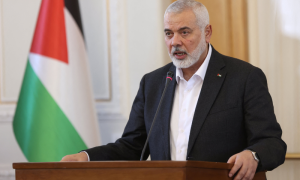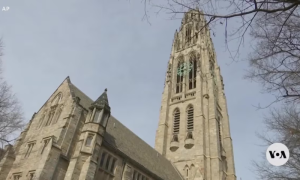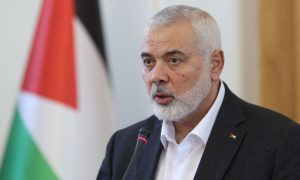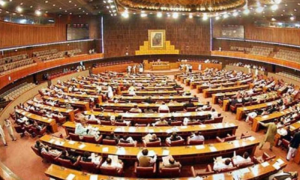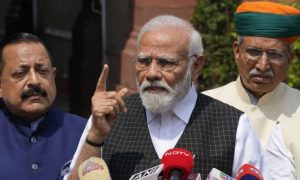NAIROBI: The landmark African climate talks are set to wrap up Wednesday (today) with leaders seeking a united voice to highlight the continent’s green growth potential provided the world steps up help for funding and debt.
Africa faces acute vulnerability to the escalating impacts of climate change, yet Kenyan President William Ruto has been advocating for a change in narrative at the conference. He emphasizes expediting the region’s transition to clean energy.
The expected final declaration from the Africa Climate Summit in Nairobi will call upon the international community to assist in achieving this goal by reducing the continent’s crippling debt burden and reforming the global financial system to facilitate investment.
Leaders will also insist that wealthier carbon-emitting nations uphold their longstanding climate commitments to support economically disadvantaged nations.
Observers suggest that achieving unity at this conference could create momentum for a series of crucial upcoming gatherings, notably the imminent UN climate summit in November, including the G20 meeting scheduled for this weekend.
However, achieving consensus is challenging within the diverse continent of 1.4 billion people, where some governments advocate for a future powered by renewables while others defend their fossil fuel reserves.
These competing visions of the world’s energy future are likely to be on display during the COP28 talks in the oil-rich United Arab Emirates, where the world will assess ongoing efforts to reduce emissions that drive planetary warming.
Addressing his counterparts on Tuesday at the Nairobi conference, President Ruto envisions “future where Africa finally steps into the stage as an economic and industrial power, an effective and positive actor on a global arena”.
Ruto argues that Africa is well-positioned to benefit from the transition away from carbon-emitting fossil fuels, given its youthful population, substantial renewable energy potential, and abundant natural resources, including approximately 40 percent of global reserves of cobalt, manganese, and platinum—critical for batteries and hydrogen fuel cells.
Kenya has emerged as a leader in renewable energy, committing to make renewables account for 100 percent of its electricity by 2030.
Tuesday witnessed a significant boost in efforts to invest in renewables at the summit, with the United Arab Emirates pledging $4.5 billion to accelerate Africa’s shift to clean energy.
Nevertheless, substantial challenges persist on a continent where hundreds of millions lack access to electricity.
The International Energy Agency (IEA) notes that Africa boasts 60 percent of the world’s best solar energy resources but currently attracts only three percent of energy investments.
African nations grappling with mounting debt and insufficient funds are calling for a comprehensive overhaul of the global financial system, placing added pressure on institutions like the International Monetary Fund (IMF) and World Bank (WB) to unlock investment and climate finance.
Africa, among the regions hardest hit by climate change, is pressing wealthy polluting nations to fulfill their commitment to provide $100 billion annually for clean energy and climate resilience.
Vulnerable nations, least responsible for global warming, have gained recognition for the need for separate funding to help them cope with the heatwaves, droughts, and floods already affecting communities worldwide.
In a recently released report, Oxfam highlights the devastating impact of climate change in Ethiopia, Kenya, Somalia, and South Sudan. It estimates losses of between $15 billion and $30 billion in the two years leading up to 2022, or approximately two to four percent of the region’s GDP.
Between 2021 and 2023, these countries lost about $7.4 billion in livestock alone.
“Millions of already struggling people saw their animals die and lost their ability to grow, sell or eat nutritious food, plunging them into even greater poverty and hunger,” the report said. —AFP/APP















